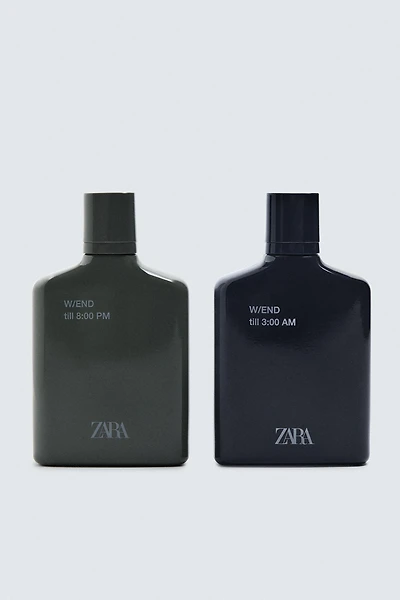Home
Till the End of Time
Barnes and Noble
Loading Inventory...
Till the End of Time in Bloomington, MN
Current price: $22.49


Till the End of Time in Bloomington, MN
Current price: $22.49
Loading Inventory...
Size: OS
Sometimes dismissed as a derivation of Samuel Goldwyn's
The Best Years of Our Lives
, RKO Radio's superb
Till the End of Time
was actually based on Niven Busch's novel
They Dream of Home
, and was completed and released several months before the Goldwyn film. The story concentrates on three ex-marines: Cliff Harper (Guy Madison), Bill Tabeshaw (Robert Mitchum) and Perry Kincheloe (Bill Williams). Harper falls in love with emotionally distraught war widow Pat Ruscomb (Dorothy McGuire); Tabeshaw endures one disappointment after another as he tries to buy his own ranch; and Kincheloe, rendered legless by the war, intends to spend the rest of his life wallowing in self-pity. All three men find a new lease on life when they engage in a cathartic barroom brawl against a bigoted group of self-styled patriots led by hate-spouting Ray Teal (forever typecast as rabid racists during the postwar years). It was this climactic scene, which remains the most memorable aspect of
(outside of its Chopin-inspired theme song) that caused a lot of headaches for producer Dore Schary, screenwriter Allen Rivkin and director Edward Dmytryk during the House Unamerican Activities hearings a few years later: what was accepted as pro-American in 1946 would soon be labelled "Pinko" by the anti-Red zealots.
The Best Years of Our Lives
, RKO Radio's superb
Till the End of Time
was actually based on Niven Busch's novel
They Dream of Home
, and was completed and released several months before the Goldwyn film. The story concentrates on three ex-marines: Cliff Harper (Guy Madison), Bill Tabeshaw (Robert Mitchum) and Perry Kincheloe (Bill Williams). Harper falls in love with emotionally distraught war widow Pat Ruscomb (Dorothy McGuire); Tabeshaw endures one disappointment after another as he tries to buy his own ranch; and Kincheloe, rendered legless by the war, intends to spend the rest of his life wallowing in self-pity. All three men find a new lease on life when they engage in a cathartic barroom brawl against a bigoted group of self-styled patriots led by hate-spouting Ray Teal (forever typecast as rabid racists during the postwar years). It was this climactic scene, which remains the most memorable aspect of
(outside of its Chopin-inspired theme song) that caused a lot of headaches for producer Dore Schary, screenwriter Allen Rivkin and director Edward Dmytryk during the House Unamerican Activities hearings a few years later: what was accepted as pro-American in 1946 would soon be labelled "Pinko" by the anti-Red zealots.
Sometimes dismissed as a derivation of Samuel Goldwyn's
The Best Years of Our Lives
, RKO Radio's superb
Till the End of Time
was actually based on Niven Busch's novel
They Dream of Home
, and was completed and released several months before the Goldwyn film. The story concentrates on three ex-marines: Cliff Harper (Guy Madison), Bill Tabeshaw (Robert Mitchum) and Perry Kincheloe (Bill Williams). Harper falls in love with emotionally distraught war widow Pat Ruscomb (Dorothy McGuire); Tabeshaw endures one disappointment after another as he tries to buy his own ranch; and Kincheloe, rendered legless by the war, intends to spend the rest of his life wallowing in self-pity. All three men find a new lease on life when they engage in a cathartic barroom brawl against a bigoted group of self-styled patriots led by hate-spouting Ray Teal (forever typecast as rabid racists during the postwar years). It was this climactic scene, which remains the most memorable aspect of
(outside of its Chopin-inspired theme song) that caused a lot of headaches for producer Dore Schary, screenwriter Allen Rivkin and director Edward Dmytryk during the House Unamerican Activities hearings a few years later: what was accepted as pro-American in 1946 would soon be labelled "Pinko" by the anti-Red zealots.
The Best Years of Our Lives
, RKO Radio's superb
Till the End of Time
was actually based on Niven Busch's novel
They Dream of Home
, and was completed and released several months before the Goldwyn film. The story concentrates on three ex-marines: Cliff Harper (Guy Madison), Bill Tabeshaw (Robert Mitchum) and Perry Kincheloe (Bill Williams). Harper falls in love with emotionally distraught war widow Pat Ruscomb (Dorothy McGuire); Tabeshaw endures one disappointment after another as he tries to buy his own ranch; and Kincheloe, rendered legless by the war, intends to spend the rest of his life wallowing in self-pity. All three men find a new lease on life when they engage in a cathartic barroom brawl against a bigoted group of self-styled patriots led by hate-spouting Ray Teal (forever typecast as rabid racists during the postwar years). It was this climactic scene, which remains the most memorable aspect of
(outside of its Chopin-inspired theme song) that caused a lot of headaches for producer Dore Schary, screenwriter Allen Rivkin and director Edward Dmytryk during the House Unamerican Activities hearings a few years later: what was accepted as pro-American in 1946 would soon be labelled "Pinko" by the anti-Red zealots.

















